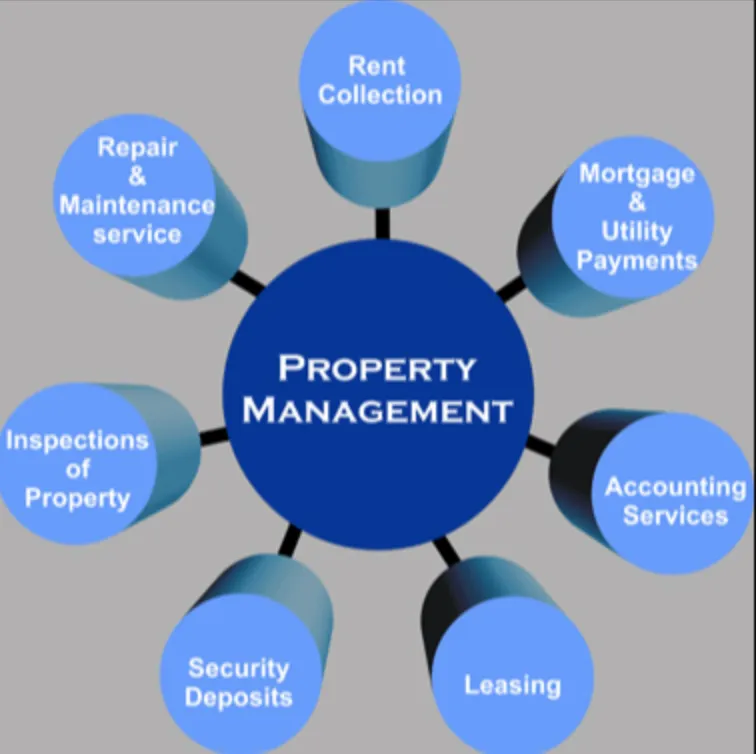

A-List California Property Management
A List California Property Management is responsible for overseeing the day-to-day operations of residential real estate properties on behalf of property owners. Their duties may vary depending on the size and type of the property but rest assured you will never be charged an upfront fee, onboarding fee or advanced fee of any kind. Our day to day management activities include but are certainly not limited to the following:
Tenant Relations: Residential property managers are often the primary point of contact for tenants. They handle tenant inquiries, address concerns, and ensure a positive relationship between the property owner and tenants.
Leasing and Vacancies: Property managers are involved in marketing rental properties, screening potential tenants, and handling the leasing process. They may also be responsible for ensuring that units are occupied and minimizing vacancies.
Rent Collection: Property managers oversee rent collection, ensuring that tenants pay rent on time. They may also handle late payments and initiate eviction proceedings if necessary.


Property Maintenance: Maintenance is a crucial aspect of property management. Managers coordinate and oversee repairs, routine maintenance, and ensure that the property is in good condition. This may involve hiring contractors and scheduling maintenance tasks.
Budgeting and Financial Management: Property managers often work with property owners to develop budgets, track expenses, and ensure that the property operates within financial parameters. They may also provide financial reports to property owners.
Legal Compliance: Property managers need to stay informed about local, state, and federal housing laws. This includes ensuring that the property complies with regulations related to fair housing, health and safety codes, and other legal requirements.
Inspections: Conducting regular inspections of the property to identify any maintenance or safety issues is part of the property manager's role. This helps in addressing problems proactively and maintaining the property's value.
Emergency Response: Property managers must be available to handle emergencies, such as burst pipes, electrical issues, or other urgent matters. They need to have protocols in place for swift response and resolution.
Record Keeping: Maintaining accurate records is crucial. Property managers keep records of leases, tenant communications, maintenance activities, and financial transactions.

Property Improvement and Upgrades: In some cases, property managers may be involved in recommending and overseeing improvements or upgrades to the property to enhance its value or attract quality tenants.
Overall, residential property managers play a key role in ensuring that properties are well-maintained, occupied, and financially viable for property owners.
A-List California Property Management
A List California Property Management is responsible for overseeing the day-to-day operations of residential real estate properties on behalf of property owners. Their duties may vary depending on the size and type of the property but rest assured you will never be charged an upfront fee, onboarding fee or advanced fee of any kind. Our day to day management activities include but are certainly not limited to the following:

Tenant Relations: Residential property managers are often the primary point of contact for tenants. They handle tenant inquiries, address concerns, and ensure a positive relationship between the property owner and tenants.
Leasing and Vacancies: Property managers are involved in marketing rental properties, screening potential tenants, and handling the leasing process. They may also be responsible for ensuring that units are occupied and minimizing vacancies.
Rent Collection: Property managers oversee rent collection, ensuring that tenants pay rent on time. They may also handle late payments and initiate eviction proceedings if necessary.

Property Maintenance: Maintenance is a crucial aspect of property management. Managers coordinate and oversee repairs, routine maintenance, and ensure that the property is in good condition. This may involve hiring contractors and scheduling maintenance tasks.
Budgeting and Financial Management: Property managers often work with property owners to develop budgets, track expenses, and ensure that the property operates within financial parameters. They may also provide financial reports to property owners.
Legal Compliance: Property managers need to stay informed about local, state, and federal housing laws. This includes ensuring that the property complies with regulations related to fair housing, health and safety codes, and other legal requirements.
Inspections: Conducting regular inspections of the property to identify any maintenance or safety issues is part of the property manager's role. This helps in addressing problems proactively and maintaining the property's value.
Emergency Response: Property managers must be available to handle emergencies, such as burst pipes, electrical issues, or other urgent matters. They need to have protocols in place for swift response and resolution.
Record Keeping: Maintaining accurate records is crucial. Property managers keep records of leases, tenant communications, maintenance activities, and financial transactions.

Property Improvement and Upgrades: In some cases, property managers may be involved in recommending and overseeing improvements or upgrades to the property to enhance its value or attract quality tenants.
Overall, residential property managers play a key role in ensuring that properties are well-maintained, occupied, and financially viable for property owners.





Facebook